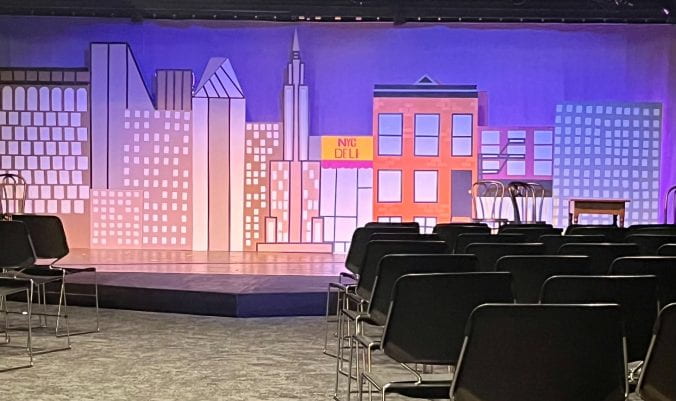I’m the type of person who thinks way too much about things, whether that be about decisions I make or about media I watch or listen to. Funnily enough, both of those aspects of myself fit together perfectly, because the past two weeks I’ve had working on the Harrington Theatre Arts Company’s recent production of the show If/Then. If you weren’t able to catch it, the story of If/Then focuses on Elizabeth and two timelines branching out from a single decision: one where she chooses to go with her newfound friend Kate (who calls her Liz) and one where she chooses to go with an old college friend Lucas (who calls her Beth). That single decision has a huge effect on her life as well as the lives of her friends and acquaintances. People who may meet and fall in love in one may never meet at all in the other, all because of a single decision. I, like many people, also tend to think long and hard over the possibilities that are presented in life’s choices; there can be advantages and pitfalls to such overthinking, but there are of course ways that media such as If/Then explore how one can overcome all of those pitfalls.
Of course, spending time weighing options and considering the outcome of them is standard when any decision arises. I am not an impulsive person to be fair, but I think it’s usually best to weigh your options and go from there. Something like that can be useful when looking into new leadership positions around campus and figuring out how to balance your time, or when deciding your classes for next semester. An example of this is weighing my options when looking into my honors classes. Within my major I’ve often had the same professors multiple times, so I’ve been able to use past experiences in choosing which class to give myself the extra workload. Weighing your options is rarely, if ever, a bad thing, especially so when taking into account how your decision might affect your mental health or life balance.
Spending too much time on the “what-ifs” has its pitfalls, however. Spending too much time wondering whether you should do something rather than actually doing it can lead to the time for action passing you by, or it can lead to settling for a decision rather than choosing what one feels is truly best or what one truly wants. To tie in another musical, Into the Woods discusses spending time “Lost in the Woods,” or rather, the “woulds.” Spending too much time caught in the “woulds” of possibility can lead things to a standstill. My personal outlook is that, for almost any situation, it’s never wrong to look to a second or third or maybe even fourth opinion. Asking other people what they would choose or what they would do in your situation can give huge insight and allow you to learn lessons that you can apply further into the future.
Ultimately, it can be difficult to balance the ideas of dwelling on decision-making and limiting impulsivity, but I believe that the ultimate lesson is to not let that decision-making immobilize you or make you regret what might have been in another timeline; you are living your own unique experience, and that in itself is a form of artistry. Not all missed opportunities are forever missed, and stressing too much over those past opportunities can cloud judgment for future ones. Each day is a new beginning.



